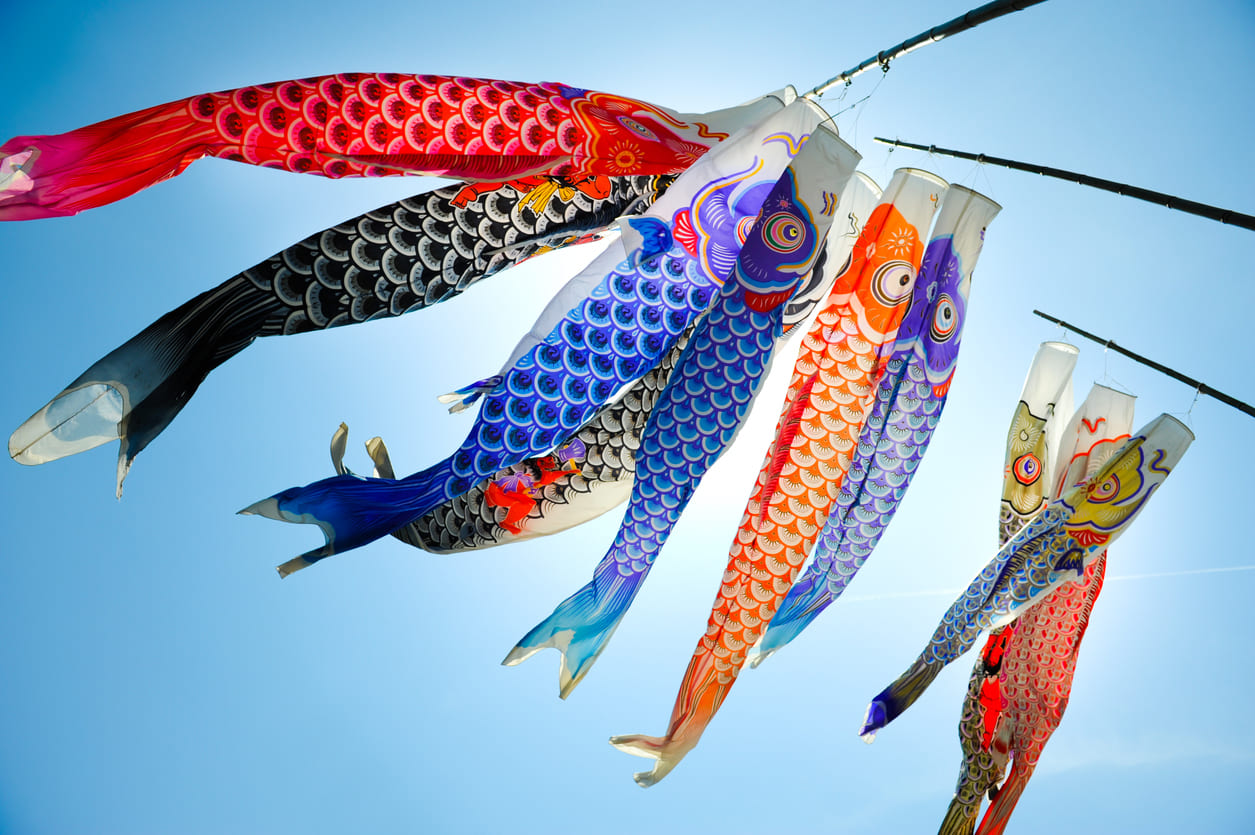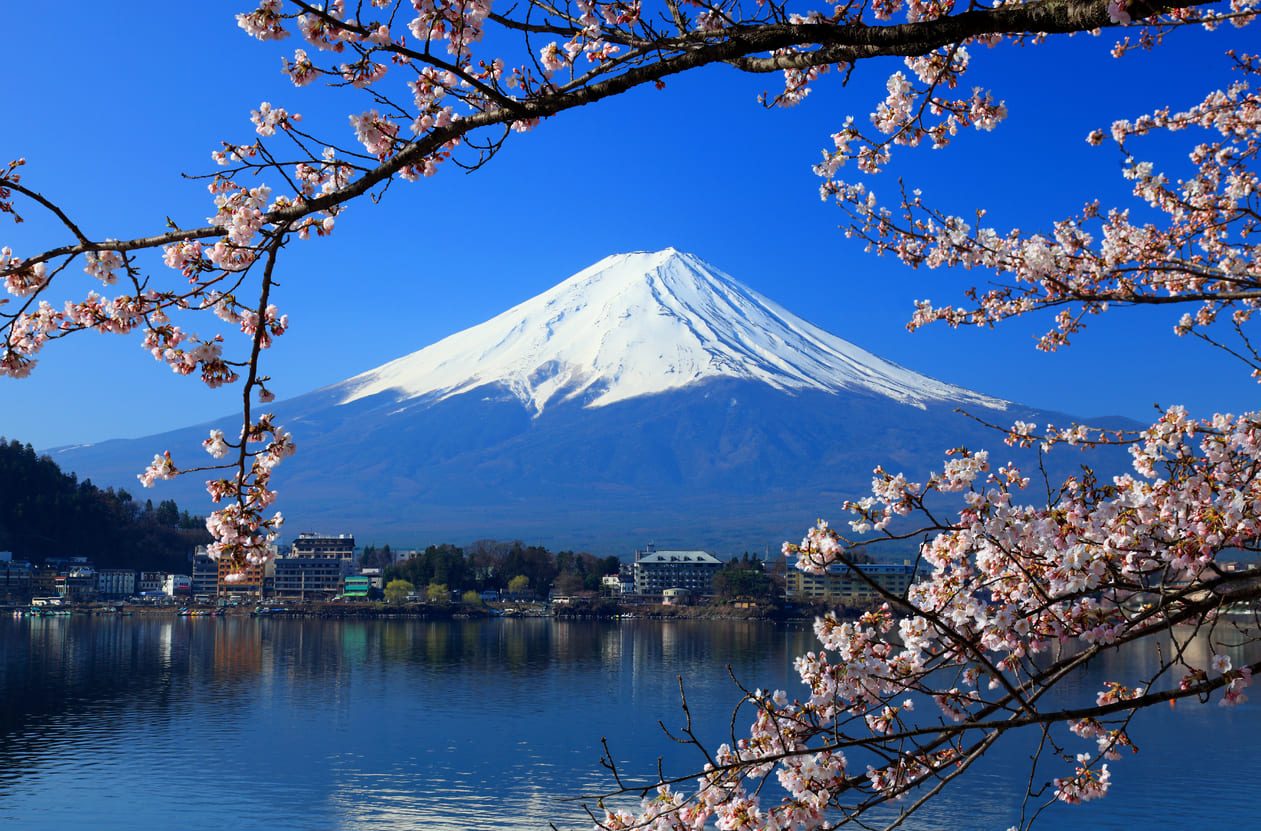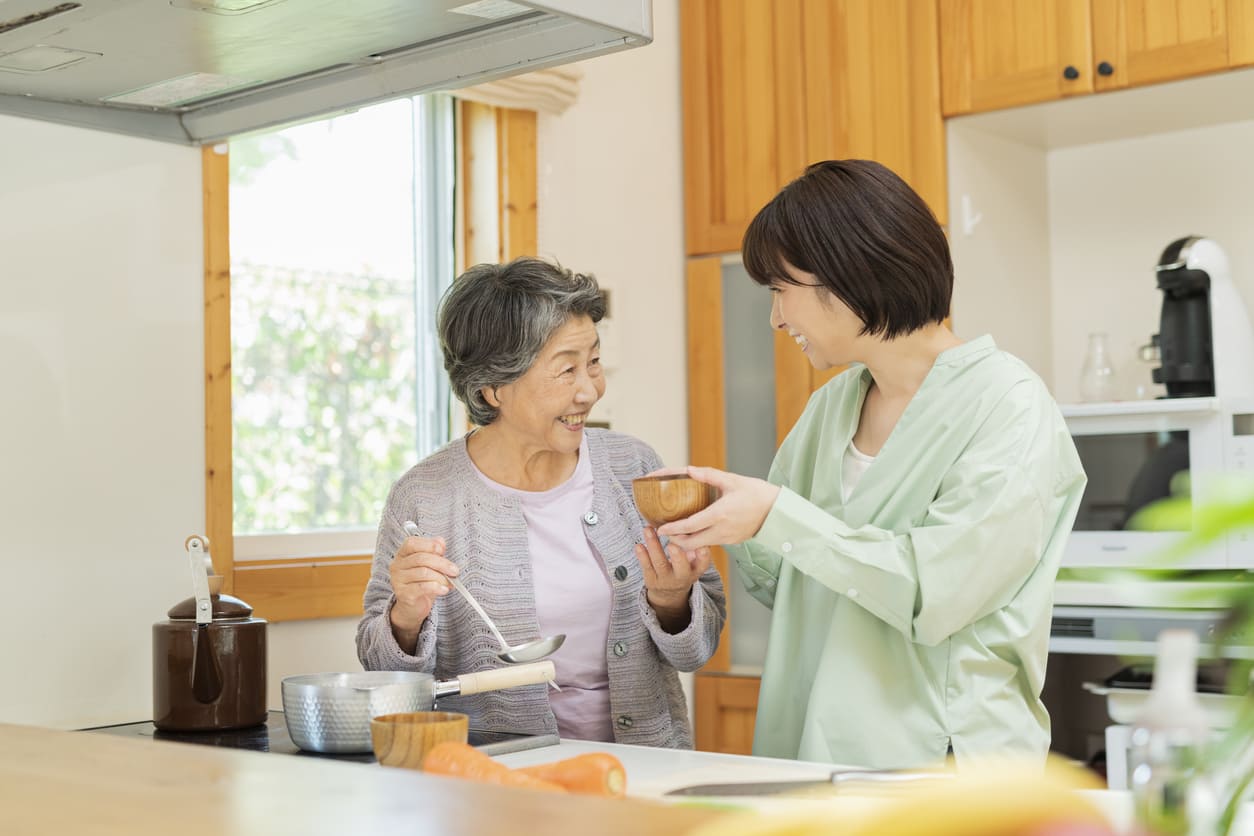Dates of Children's Day in Japan
| 2026 | May 5 |
| 2025 | May 5 |
| 2024 | May 5 - May 6 |
Japan Holiday Calendars
Children's Day, celebrated on May 5, honors the health, happiness, and growth of children. Families display colorful carp streamers and samurai dolls to symbolize strength, courage, and hope for a bright future.
Children's Day: A Public Holiday?
Children's Day (Kodomo no Hi) is a national public holiday in Japan, with schools, offices, and most businesses closed as families celebrate children's health, happiness, and future.

Children's Day
Children's Day, or Kodomo no Hi, is celebrated on May 5 and has roots in an older celebration called Tango no Sekku, which was traditionally held to honor boys. The festival dates back to the Nara period and was part of a seasonal tradition to ward off evil spirits and wish for strength and good fortune. Over time, it became more focused on boys, while girls were celebrated on March 3 during Hinamatsuri (Doll's Festival).
After World War II, in 1948, the Japanese government renamed the holiday as Children's Day and made it a national public holiday. The purpose was to celebrate the happiness and growth of all children, regardless of gender, and to express gratitude toward parents. While traditional customs honoring boys still continue, such as displaying carp streamers and samurai figures, the modern holiday embraces all children and emphasizes their well-being, dreams, and future. It remains a joyful and symbolic part of Japan's Golden Week.
Observance of Children's Day in Japan
Children's Day is a cheerful and meaningful holiday that brings families together to celebrate the strength and happiness of their children. One of the most iconic sights on this day is the display of colorful carp-shaped streamers called koinobori, which are hung outside homes. The carp symbolizes courage and determination, based on a Chinese legend where a carp swims upstream to become a dragon. Families also display samurai dolls or helmets to wish their children strength and bravery.
Many households prepare special foods such as kashiwa mochi (rice cakes wrapped in oak leaves) and chimaki (sweet rice dumplings wrapped in bamboo leaves). These traditional foods symbolize resilience and protection. Parents often spend the day doing fun activities with their children, such as visiting parks, amusement centers, or simply enjoying time together at home. Local communities and cultural centers may host events or exhibitions related to children's creativity and well-being.
Children's Day is important because it honors the future of society—its children. It promotes the values of strength, hope, and family connection. While some customs reflect older traditions focusing mainly on boys, the modern version emphasizes equality and celebrates all children. The holiday also gives parents a chance to reflect on their role and show appreciation for the joy that children bring into their lives. As part of Golden Week, it offers not just a break from work or school but a time to strengthen family bonds. Children's Day continues to be a bright and inspiring celebration filled with color, warmth, and love across Japan.
Children's Day Observances
| Year | Date | Weekday | Name | Holiday Type |
|---|---|---|---|---|
| 2024 | May 5 | Sun | Children's Day | National Holiday |
| May 6 | Mon | Children's Day observed | National Holiday | |
| 2025 | May 5 | Mon | Children's Day | National Holiday |
| 2026 | May 5 | Tue | Children's Day | National Holiday |
| 2027 | May 5 | Wed | Children's Day | National Holiday |
| 2028 | May 5 | Fri | Children's Day | National Holiday |



